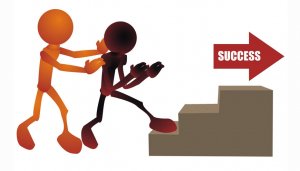You cannot claim to be ethical if you lack values, beliefs, cultural experiences, principles, experiences both personal and professional and of course good conscience as a result of upbringing and exposure.
To be a good man or woman, you must have some stock of “what good looks like” in your brain so that when you experience tough situations you have stock of leading insights or best practices to guide your next course of action.
Different people will respond to situations that confront them differently based on their knowledge, exposure, desired outcome, and value system. For example, a person with good morals and conscience would find it difficult or not tenable to heed to calls to kill an adversary for financial advantage! Values help one to decide between right and wrong, vice and virtue, and of course, the point when something started coming fishy.
Are you ethical? Here are two theories I found fascinating about the ethical questions from a book by Lynn Fountain:
“Beneficence: Guides the ethical theory that a professional should do what is good. The concept asserts individuals should attempt to generate the largest amount of good versus evil.
Least harm: Comes into play and deals with the situation where there does not appear to be one choice that is more beneficial than another. In this case, the person should select the choice that will result in the least harm to the fewest people.”
To be ethical, you must have a value system to guide your behaviour and responses to what happens to you. in the next post, I explore this issue with case studies.
Copyright Mustapha B Mugisa, Mr Strategy, 2020. All rights reserved.


